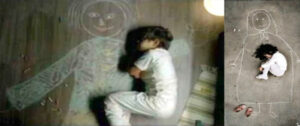SHARE WITH FRIENDS:
The sources show the following types of families according to the existing environment in the family, the interaction of family members with each other:
1) peaceful, happy families (in which the tasks are performed successfully, there are no conflicts between family members; each case is consulted before it is done, if problems arise, they are solved together, together);
2) families at risk of social problems (there are problems in raising children);
3) troubled families (there are constant quarrels and great difficulties in raising children);
4) antisocial families (parents live an immoral life; sanitary and hygienic rules are not followed in the family, children are left unsupervised).
In the upbringing of children and their adaptation to social life, families are assisted in the following forms:
Put forward - Advice on the upbringing of children, overcoming difficulties in the organization of their education, the use of effective forms, methods and tools.
Provide methodological assistance - Parents are informed about the methodological knowledge, control over the physiological and psychological development of children, the necessary assistance from the base of proper care and upbringing, psychological support of families, medical, psychological and social assistance to children in need. help is provided.
Social protection - In at-risk, troubled or antisocial families, children are protected from drug, alcoholic, abusive parents; separation of children from abnormal parents, placement of them in special educational institutions or adoption, registration of documents in this regard.
Socio-pedagogical assistance to families can be long-term or short-term.
Minors have guardians or trustees according to their social status.
Sponsorship - to protect a person, to take his side, to assume an obligation.
Guardianship - to take care of minor orphans until they reach adulthood and to take care of the property left to them. Guardianship of orphans is carried out in two ways:
1) adoption; 2) transfer to state care
Children in need of sponsorship and guardianship may include:
his parents died;
parents missing;
the parent has been deprived of parental rights;
incapacitated; his parents are serving sentences in correctional colonies; when his parents commit a crime
accused and remanded in custody;
parents refusing to raise a child;
parents were temporarily placed in medical and social facilities
Socio-pedagogical activities in the field of adoption. In the adoption of a child: the choice of families;
parent training; it is important to conduct patronage on the mental state, education of children.
Adoption activities are carried out in several stages. That is:
1) search for adoptive parents;
2) completion of the application form and necessary documents by the applicants;
3) a visit to a family, "orphanage" or other educational institution where the child is located;
4) study (diagnosis) of family and its "friends";
5) initial training of the new parent (the parent will be trained for 23 days by acquiring knowledge in the institution where the child is located);
6) transfer of the child to the adoptive parents (this process is carried out by the guardianship and justice authorities)
When the child is adopted into a new family, socio-pedagogical patronage is formed.
Socio-pedagogical activities in the field of adoption are carried out in collaboration with employees of social security departments, doctors, psychologists, speech pathologists and lawyers.
Socio-pedagogical activity of the “You are not an orphan” foundation. During the years of independence, the Republic of Uzbekistan pays special attention to the upbringing and socialization of children in need of guardianship and trusteeship. The Republican Center for Socialization of Children and the You Are Not an Orphan Foundation are directly leading the complex measures in this direction. Founded in 2002, the You Are Not an Orphan Foundation works to adapt orphanages and orphanages to social life.
prepared by psychologist Sarvar Kakhkhorov
pmt.uz


